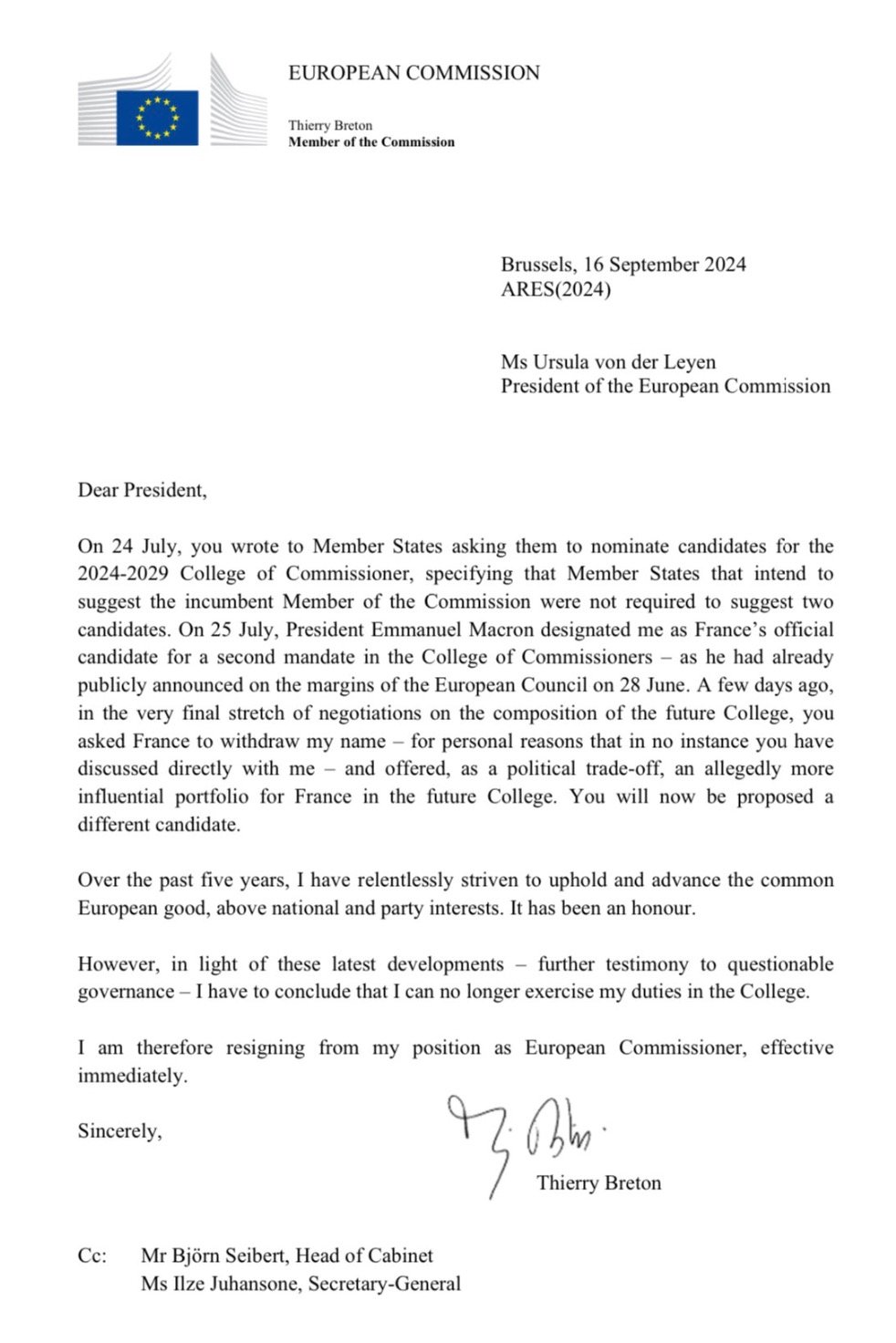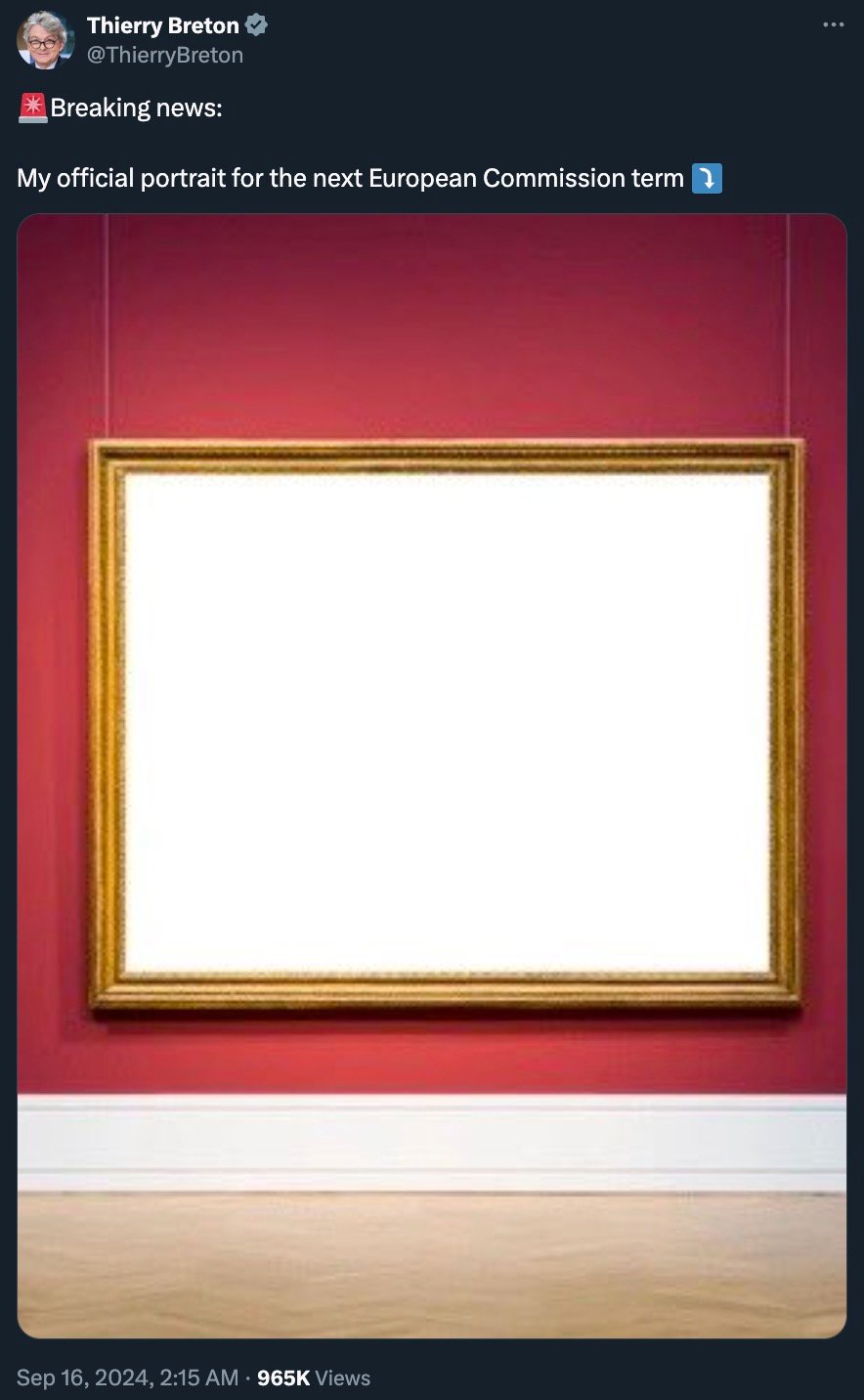Thierry Breton, the European Commissioner For Internal Market from France, has abruptly resigned, voicing his disapproval of the EU executive’s “questionable governance” under Ursula von der Leyen. His resignation announced via a post on X, marks a dramatic exit reflective of his tumultuous tenure as Europe’s chief censorship advocate.
Breton’s resignation is not only significant for its sudden nature but also because it follows a history of unilateral actions that have frequently put him at odds with other members of the Commission. Recently, Breton independently sent a contentious letter to Elon Musk, owner of the social media platform X, threatening consequences if the platform allowed content that could “seriously harm” EU citizens.
This letter, sent just hours before Musk’s scheduled interview with US presidential candidate Donald Trump, was reportedly issued without the coordination or agreement of von der Leyen or other commissioners. The Commission criticized both “the timing and the wording of the letter,” emphasizing that it was not aligned with the collective approach expected within the Commission.

Breton’s independent actions underscore his often solitary and provocative approach to regulation, especially concerning social media. This incident not only highlighted the internal conflicts within the European Commission but also underscored the tension between regulatory enforcement and the autonomy of its commissioners.
Breton’s exit is peppered with ironies, particularly his use of X to announce his resignation—a platform he has long threatened with punitive measures for its content policies. His resignation letter, symbolically posted alongside an image of an empty frame, indicative of his would-have-been official portrait for the next term, vividly captures his bent for the theatrical.

This event throws a spotlight on the strained relations and governance issues within von der Leyen’s administration, which has been further complicated by her efforts to assemble a new Commission team focused on gender equality and diverse representation. These efforts have stirred political controversies, notably in Slovenia, reflecting the challenging dynamics von der Leyen faces in her leadership.
Don’t see this as the EU backing away from its pro-censorship policies, however. Von der Leyen is herself a censorship advocate.
The reaction to Breton’s resignation has been mixed. While some view his departure as a loss given his assertive actions against major tech companies like X and Meta, others believe it could be an opportunity to foster a more cooperative and unified approach within the Commission. Breton, known for his stringent regulatory measures and a strong stance on European digital sovereignty, has left a legacy that will influence EU policies long after his departure and an idea that the EU creates little but regulates everything.










